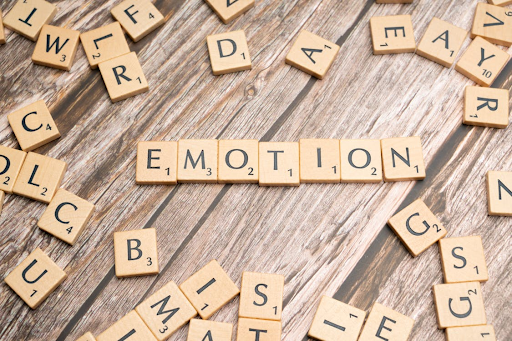
Emotional regulation is a cornerstone of mental health and well-being. When emotions feel overwhelming, they can lead to destructive behaviors and hinder personal growth. For those struggling with addiction, emotional dysregulation can be particularly challenging. Dialectical Behavior Therapy (DBT) offers powerful tools to manage emotions effectively, promoting healthier coping mechanisms and improving overall mental health. In this article, we will explore the emotional regulation skills taught in DBT and how they can benefit individuals, especially within the context of addiction treatment.
Understanding DBT and Emotional Regulation
DBT, developed by Dr. Marsha Linehan, is an evidence-based form of Cognitive Behavioral Therapy (CBT) designed to treat individuals with severe emotional dysregulation. Originally developed for individuals with Borderline Personality Disorder (BPD), DBT has proven effective for a wide range of mental health issues, including substance use disorders, depression, and anxiety. It incorporates both individual therapy and group skills training, providing a comprehensive approach to emotional and behavioral regulation.
One of the primary components of DBT is emotional regulation. Emotional regulation skills are designed to help individuals understand, manage, and respond to their emotions in a healthy and constructive manner. These skills are crucial for those in drug rehab or alcohol rehab, as they address the emotional triggers that often lead to substance use. By learning to regulate emotions, individuals can reduce the likelihood of relapse and build a stronger foundation for long-term recovery.
Core Emotional Regulation Skills in DBT
- Identifying and Labeling Emotions
The first step in emotional regulation is recognizing and naming emotions. This awareness allows individuals to understand what they are feeling and why. DBT teaches individuals to identify their emotions accurately, which can prevent the escalation of negative feelings and reduce impulsive reactions. - Understanding the Function of Emotions
Emotions serve important functions, such as signaling needs or preparing for action. DBT helps individuals understand the purpose behind their emotions, fostering a more compassionate and less judgmental perspective. This understanding is particularly beneficial in treatment addiction centers, where individuals learn to view their emotional responses as normal rather than shameful. - Reducing Emotional Vulnerability
Emotional vulnerability refers to the susceptibility to intense emotions due to factors like lack of sleep, poor nutrition, or chronic stress. DBT emphasizes the importance of self-care and healthy lifestyle choices to reduce emotional vulnerability. For those in Jewish addiction treatment or kosher treatment programs, incorporating cultural and religious practices into self-care routines can be an additional source of strength and stability. - Increasing Positive Emotions
Building a life worth living involves cultivating positive experiences and emotions. DBT encourages individuals to engage in activities that bring joy and satisfaction, thereby creating a buffer against negative emotions. This skill is crucial in drug rehab and alcohol rehab settings, where individuals are working to replace harmful behaviors with healthier alternatives. - Managing Extreme Emotions
When emotions become overwhelming, it is essential to have strategies to manage them effectively. DBT provides various techniques, such as mindfulness and distress tolerance skills, to help individuals cope with intense emotions without resorting to destructive behaviors. These skills are particularly beneficial for individuals in treatment addiction centers, where managing cravings and emotional triggers is a daily challenge.
Benefits of Emotional Regulation Skills
- Improved Relationships
Effective emotional regulation leads to better interpersonal relationships. When individuals can manage their emotions, they are less likely to engage in conflict or push others away. This is particularly important in recovery, where rebuilding trust and repairing relationships is a key component of the healing process. - Enhanced Mental Health
Emotional regulation skills reduce the symptoms of anxiety, depression, and other mental health disorders. By managing emotions effectively, individuals experience fewer mood swings and less emotional turmoil. This stability is essential for those in recovery, as it reduces the risk of relapse. - Greater Resilience
Resilience is the ability to bounce back from adversity. DBT teaches individuals to view challenges as opportunities for growth, fostering a resilient mindset. This perspective is invaluable in addiction treatment, where setbacks and obstacles are common. - Increased Self-Awareness
Understanding one’s emotional patterns and triggers leads to greater self-awareness. This insight allows individuals to anticipate and manage their emotional responses more effectively. In the context of Jewish addiction treatment or kosher treatment programs, self-awareness can be further enriched by incorporating spiritual and cultural reflections into the therapeutic process. - Empowerment and Control
Mastering emotional regulation skills gives individuals a sense of control over their lives. They no longer feel at the mercy of their emotions, which can be empowering and liberating. This empowerment is crucial in drug rehab and alcohol rehab settings, where individuals are working to reclaim their lives from addiction.
Integrating DBT into Addiction Treatment
At Overcome Wellness & Recovery, we understand the critical role that emotional regulation plays in successful addiction treatment. Our programs incorporate DBT alongside other evidence-based therapies, such as CBT, to provide a comprehensive approach to recovery. We offer specialized Jewish addiction treatment and kosher treatment programs, ensuring that cultural and religious needs are met in a supportive and inclusive environment.
Embrace Emotional Mastery: The Path to Lasting Recovery
Emotional regulation is a vital skill for anyone seeking to improve their mental health and well-being, particularly those struggling with addiction. DBT offers a structured and effective approach to mastering emotional regulation, providing individuals with the tools they need to manage their emotions and build a fulfilling life in recovery. By integrating DBT into addiction treatment, Overcome Wellness & Recovery helps individuals develop the resilience, self-awareness, and emotional stability necessary for long-term success.
Whether you are seeking help for yourself or a loved one, our dedicated team is here to support you every step of the way. Explore our programs and discover how we can help you overcome the challenges of addiction and achieve lasting recovery.
Ready to take control of your emotions and reclaim your life from addiction? Contact Overcome Wellness & Recovery today to learn how our DBT programs can support your journey to lasting recovery.

